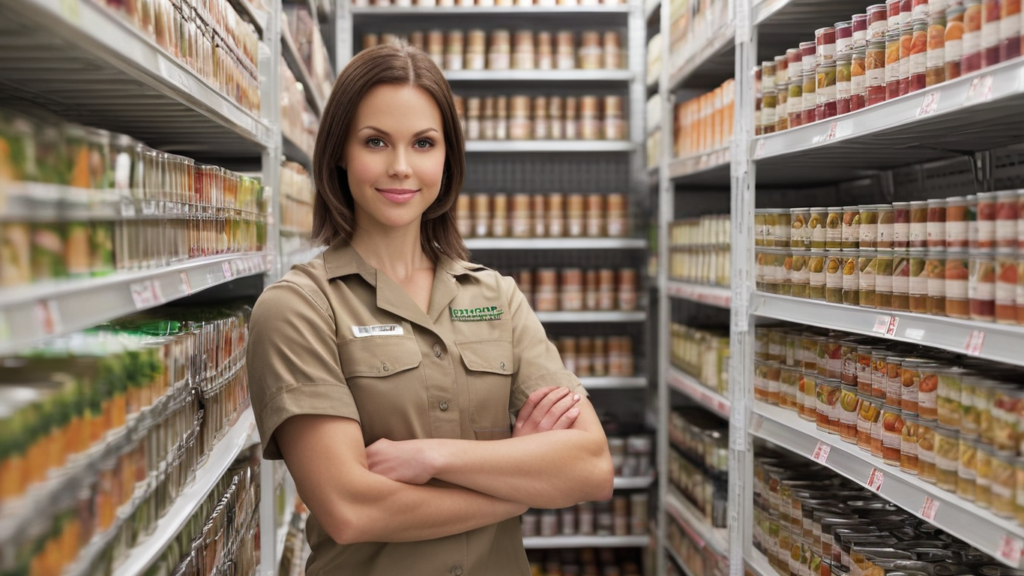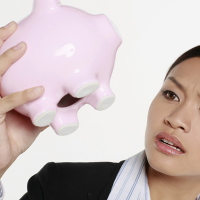How Small Actions in Tariffs Will Soon Increase the Cost and Availability of Food and Other Products: Stock Up Now!

You might think that the small, almost invisible changes—like shifts in tariff laws—don’t really affect your daily life. I mean, it’s just a number on a page somewhere, right? Something you can’t even see, can’t even touch. Yet, those little shifts? They’re everywhere. Just like that one pebble you throw into a pond. You know, the one that creates ripples… ripples you can barely see until you look up and realize that, somehow, everything around you has changed. And not always for the better.
The thing is, tariffs—those taxes on imported goods—are more than just boring policy changes. They’re like the tiniest crack in a dam. And once the water starts flowing, well, it doesn’t take long before everything downstream is flooded. That’s why, right now, you’ve got to think ahead. The next wave of tariff changes is coming, and it’s about to make food and other products more expensive and harder to get. Stock up now. Trust me, your future self will thank you.
1. The Subtle Rise in Food Prices: When a Dollar or Two Adds Up
So, picture this: You’re in the grocery store, strolling through the aisles like you always do. You grab the usual—milk, eggs, bread, the standard stuff. You don’t think much of it, but then you notice—wait a minute—those prices have bumped up. Just a bit. That loaf of bread, the one you’ve been buying for years? A little more expensive. The apples you always grab, the ones from that lovely farm you trust? Yeah, those too.
It’s just a dollar, or maybe two, right? No big deal. But here’s the kicker—those prices aren’t just a random thing. They’re a ripple from a far bigger ocean. Tariffs, those sneaky little things, are driving up costs for imported goods. And food? Yeah, food’s definitely on the list. When tariffs hit things like fruits, veggies, and dairy, the cost doesn’t just rise because of the tariff itself—it’s the whole system that gets affected. The farm that imports seeds, the trucking company that hauls the food, the warehouse workers… everyone’s costs go up. And guess who ends up paying for that? Yep, you and me.
The immediate result? Higher grocery bills. But look a little further down the road, and you’ll see a bigger picture—this is going to make healthy food less accessible to a lot of families. Those extra bucks add up. And before you know it, people will have to make tough choices: Do I buy fresh produce or skip it and get something cheaper but less nutritious? And then there’s the ripple from that—health problems, food insecurity, the whole system starts to wobble. You feel it, even if it’s just that tiny bump in price on your shopping receipt.
2. The Hidden Shortage: Why the Things You Need Might Not Be on the Shelf
Now, let’s talk about something that really starts to sting: shortages. If you think the only thing you’re dealing with are higher prices, oh boy, are you in for a surprise. As these tariffs mess with the global supply chain, something else starts to happen behind the scenes: your favorite products? They might not be available at all.
Think about it like this: there’s a toy you’ve been wanting to buy for your kid. You’ve seen it in the store for months. But then, tariffs hit the manufacturers that supply those toys. Suddenly, there’s no more supply coming in. And boom—empty shelves. Or maybe it’s a certain tech gadget you’ve had your eye on for a while—perhaps a phone, or a tablet. Same deal. The price climbs, and the availability? Well, it starts to dwindle. Fewer and fewer of these items are making their way into stores. Why? Because the costs of getting them here, of making them, are skyrocketing. And businesses? They can’t afford to sell them if no one can buy them. It’s easier for them to pull back or stop importing altogether.
Now, here’s where it gets trickier: when there’s less of something, people start hoarding. They buy everything in sight. And the more people buy, the fewer products there are for everyone else. You’re left staring at empty shelves. That immediate consequence—the empty space where products should be—creates a ripple that keeps going. More people panic-buy, more businesses run out of stock, and prices keep climbing.
You might be thinking, “Well, that’s not going to affect me, I’ll just wait it out.” But what if you could get ahead of this? Stocking up on essentials now—before that product becomes impossible to find—helps you avoid that panic. When you plan ahead, you’re not just saving yourself. You’re creating a ripple that can help your neighbors, your friends, and maybe even local businesses, too.
3. The Domino Effect: How Job Losses and Lower Wages Ripple Through the Economy
Alright, so this next part is where things get heavy. And I mean, real heavy. Tariffs don’t just mess with the price of food or toys. They can reach deep into the economy, creating a chain reaction that could leave you—and a lot of other people—struggling to make ends meet.
Let’s take a step back and look at what happens when tariffs affect businesses. Remember, companies that import goods are now paying more. And when they pay more for raw materials or products, they need to find ways to cover those costs. One way they do that? They cut jobs. It’s the easiest way to lower expenses quickly. So now, a worker in a factory, or a driver for a trucking company, loses their job. This? This is the domino effect in action.
The next ripple? Unemployment starts to rise. Families lose income, which means they spend less. That’s less money going into the local economy, less money to support small businesses, less money to pay rent, buy food, or invest in anything. The whole system starts to slow down, and before you know it, there’s a much wider-reaching economic slump.
It’s easy to feel powerless in the face of something so big, but that’s where your actions can make a difference. Stock up now. You’re not just preparing for your own household. You’re helping reduce the immediate pressure on your family’s finances, and by doing so, you’re part of the larger solution—creating economic stability by being proactive. When you’re ahead of the curve, you’re giving yourself, and your community, the breathing room they’ll need when things inevitably get tougher.
4. Global Consequences: The Butterfly Effect of Tariffs Around the World
Tariffs don’t just affect us here at home—they create waves that travel across the world. The moment one country raises tariffs, everyone feels the pressure. And it’s not just about the products you see on your shelves—it’s about the bigger picture of global trade. When tariffs on steel, for example, go up, the price of everything that depends on steel—cars, buildings, you name it—starts to climb.
This ripple effect? It’s global. It starts with the simple decision of one nation to impose tariffs. The result? The economies of countries that rely on imported goods feel it, too. And you? You’re part of this ripple—whether you know it or not. The goods you’re purchasing, the food you eat, the tech you use, they all come from that global exchange. A shift in tariffs can lead to price hikes across entire industries.
So, what’s the solution? Again, it’s about getting ahead. By preparing now, you’re not just protecting yourself from the immediate consequences of a few tariff hikes. You’re making yourself more self-reliant, more resilient, and part of a larger movement toward sustainability. You’re helping build a stronger, more resilient future.
5. The Power of Proactive Preparation: How Your Efforts Can Spark Change
Now, I know all this sounds pretty overwhelming. Tariffs, shortages, rising prices—it feels like a lot. But here’s the thing: you have more power than you think. Every time you choose to stock up on essentials, every time you make a decision to prepare, you’re creating ripples that can help create a more stable, resilient future.
It’s not just about what you’re buying right now—it’s about how those small choices stack up. Each time you prepare for the future, you set an example for others. You inspire your friends and family to think ahead, too. And before long, that ripple of positive change grows bigger. What starts as one person making a smart decision can turn into a community-wide movement toward self-reliance.
In the end, that’s the key: being proactive, thinking beyond the immediate moment, and taking action now can make all the difference. You are part of a much bigger story—one where small actions create waves of change that ripple through your life, your community, and beyond.
So, what are you waiting for? Stock up, prepare, and be the change you wish to see in the world. It all starts with you, and the ripple effect will follow.




